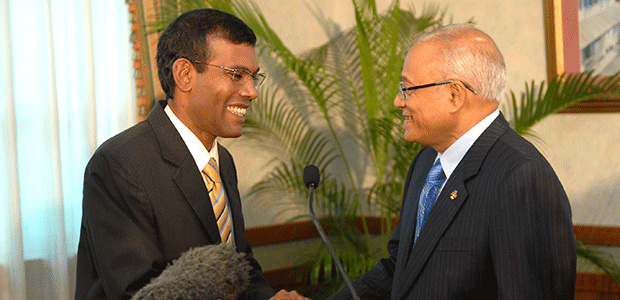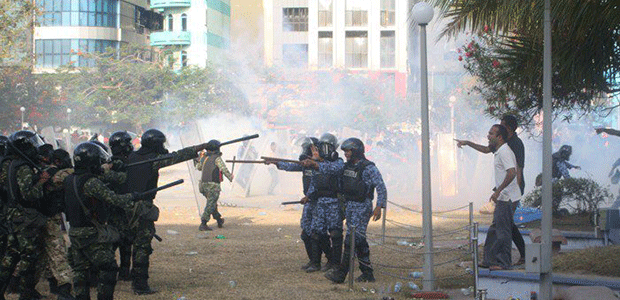As the Maldives heads for presidential elections in September this year, vote buying, a culture of misuse of state resources, concerns about transparency and integrity of judicial and electoral processes, and unprecedented levels of political polarisation pose immense challenges to this troubled democracy, a pre-election assessment by Transparency Maldives has found.
Vote buying
One of the major challenges will be the vote buying that seems extensive in some parts of the country.
According to campaign agents we met, for a parliamentary by-election last year, the two main candidates each spent more than double the spending limit under law for their constituency. Vote buying took place blatantly, a focus group discussion conducted for the assessment revealed.
Low public confidence in politicians’ sincerity to deliver on electoral promises and existence of vulnerable groups such as victims of drug abuse are particularly to be blamed for the practice of vote buying in the atoll nation.
Interestingly, our assessment finds most people might not necessarily vote for candidates from whom they accept offers.
Knowing this, some voters are forced to take photos of their voted ballot papers by smuggling mobile phones with cameras into the voting booths.
Some parties even ‘buy’ identification cards required for voting.
Troubled democratic transition
In 2008, when the Maldives – a Muslim country for over 800 years – held its first-ever multiparty democratic elections, it was a precursor to the Arab Spring. Some commentators described it as a “modest model in the Arabian Sea” and the only “religious democracy” in the world.

President Mohamed Nasheed (L) replaced President Gayoom (R) ending the latter’s 30-year rule in an exemplary peaceful transfer of power.
Half way through the electoral cycle, in February 2012, President Nasheed resigned following protests involving elements from his security forces.
The country descended into political chaos and violence, and unprecedented levels of political polarisation has gripped the society, constraining space for inclusiveness and dialogue.

A few hours before President Nasheed resigned following protests involving elements from the security services.
The prosecution of President Nasheed, who is again contesting the elections, over the arrest of a judge, has raised concerns about further violence in the run up to the elections, threatening consolidation of democracy in the Maldives.
Integrity and transparency needed for judicial and electoral processes
Against this background, the country needs a fair, transparent election. But vote-buying is not the only barrier to this happening.
The state of Maldivian judiciary has been criticised by a number of independent bodies, including UN Special Rapporteur on Independence of Judges and Lawyers.
Transparency Maldives assessment recommends guaranteeing process of high integrity and transparency for court cases affecting electoral rights.
It also says backtracking on transparency and accessibility standards by the electoral management body must be reversed to maintain public confidence in the electoral processes.
Unlimited spending: Culture of misuse of state resources
The Maldivian electoral legal framework in practice allows unlimited spending by political parties and lacks controls against misuse of state resources by incumbent presidents and parties. As a result, the assessment concludes, there is a “culture” of misuse of state resources.
It also lacks provisions guaranteeing an independent electoral complaints system, which is “broken” in practice, the assessment says.
What needs to happen
We recommend establishing an interagency task force between the Elections Commission and enforcement agencies to deal with issues of vote buying, misuse of state resources and political violence.
Targeted voter education around these issues and long-term monitoring of infractions by enforcement agencies and civil society are recommended by the assessment.















 Connect with us on Facebook
Connect with us on Facebook Follow us on Twitter
Follow us on Twitter